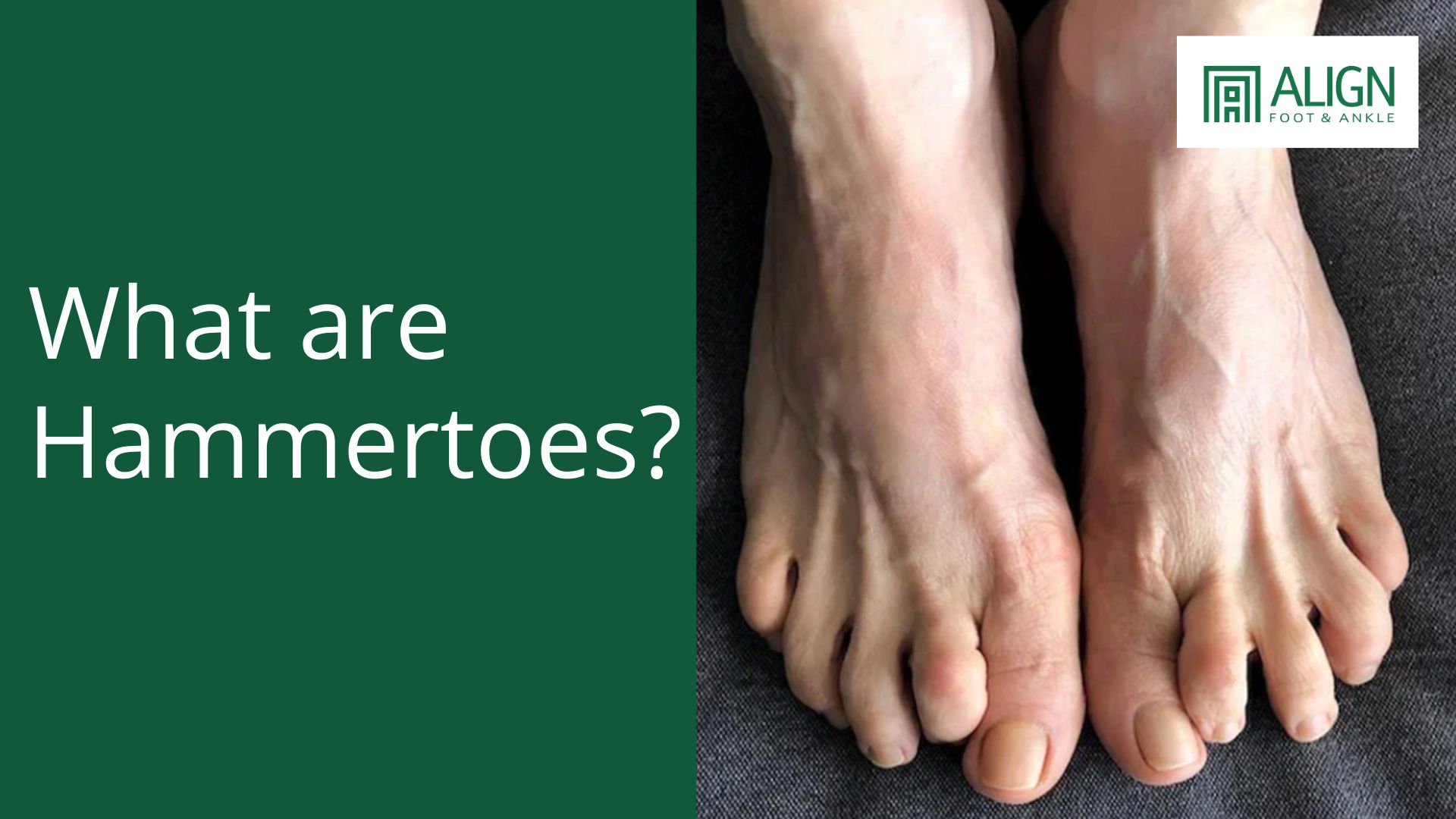Understanding Hammertoes: A Common Foot Condition Explained
What is a Hammertoe?
A hammertoe is a deformity of the toe joints, causing the toe to bend downward instead of pointing forward. The proximal interphalangeal (PIP) joints in the middle of your second, third, and fourth toes can sometimes bend abnormally, creating a hammertoe. Hammertoes can be flexible or rigid, and they often cause discomfort and difficulty with wearing shoes.
The different types of hammertoe include:
- Flexible hammertoe: With early-stage (flexible) hammertoe, the toe doesn’t lay flat but you can still move the joint.
- Rigid hammertoe: With late-stage (rigid) hammertoe, the PIP joint won’t move at all, so your toe remains in the bent position all the time. Claw toe is a related condition in which both the PIP joint and the distal interphalangeal (DIP) joint at the end of your toe bend abnormally.
Causes of Hammertoes
Hammertoes occur because of disrupted muscle balance in your toes. This leads to excessive pressure on the connected tendons, causing the tendons to draw tight to create hammertoe.
The root causes of the muscle imbalance include:
- Genetics: Like bunions, some individuals inherit foot structures that predispose them to hammertoes.
- Foot Structure: Certain foot shapes, such as high arches or excessively flexible joints, can increase the likelihood of hammertoe formation.
- Footwear: Wearing shoes that are too tight or narrow, especially those with high heels, can force the toes into a bent position over time. Backless shoes worn consistently can cause toes to excessively grip and stay bent.
- Muscle Imbalance: Weak or imbalanced toe muscles can lead to hammertoes, as some muscles overpower others, causing the toe to bend unnaturally.
- Injury: Trauma to the toe, such as stubbing or jamming it, can also result in hammertoe development.
Hammertoe Symptoms
The primary symptom of a hammertoe is the abnormal bending of the affected toe joint, but it can also cause:
- Pain or discomfort, particularly when wearing shoes
- Corns or calluses on the top of the affected toe joint
- Difficulty straightening the toe
- Swelling and redness at the joint
How are Hammertoes Treated?
Hammertoes can be uncomfortable and even disruptive because they can make it more difficult to maintain proper balance as you walk. Treatment can ease discomfort and restore normal muscle and tendon balance in the toes. Conservative treatments for hammertoes focus on relieving symptoms and preventing further progression. These may include:
- Wearing shoes with a roomy toe box to accommodate the bent toe
- Padding to relieve pressure to the affected joint
- Using custom orthotic inserts to provide support, redistribute pressure, and stabilize the foot and reduce toe contraction
- Foot and toe exercises and stretches to strengthen and balance the muscles
- Applying padding or splints to help straighten the toe temporarily
- Over-the-counter pain relievers and anti-inflammatory medications
- Icing the affected toe to reduce swelling and discomfort
Prevention
There are several things you can do to help prevent hammer toes from forming or progressing:
- Wear supportive shoes to help prevent deformities. Hammertoes are often related to faulty foot mechanics, especially foot flattening.
- Wear custom orthotics! Orthotics may slow the progression or prevent the development of hammer toes.
- Avoid shoes with narrow or pointed toe boxes that can compress the toes.
Minimally Invasive Surgery
In some cases, when conservative measures fail to provide relief, or if the hammertoe is severe, surgical intervention may be necessary. Minimally invasive surgery offers several advantages, including smaller incisions, faster recovery, and reduced risk of complications. During hammertoe surgery, Dr. Ho-Ellsworth restores the tendon and muscle balance in your affected toe by realigning the joint. Dr. Ho-Ellsworth can also perform minimally invasive surgery (MIS) using techniques that require no internal hardware. This means less pain and scarring, and you can walk the same day of your hammertoe surgery. And get this! Dr. Ho-Ellsworth performs the surgery under local anesthsia and in our in-office surgical suite, so there are no hefty hospital bills!
Schedule Your Consultation
If you’re experiencing discomfort or difficulty due to hammertoes, our team at Align Foot & Ankle is here to help. Contact us at 512-882-4911 or book your appointment online to explore treatment options and address your foot concerns.
Stay ConnectedFor more insights and updates on foot and ankle health, follow us on TikTok, Instagram, and Facebook. Your feet deserve expert care, and we’re dedicated to providing it every step of the way.



